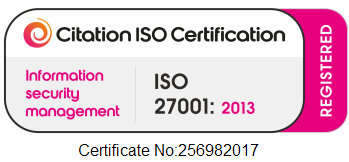Getting the right person for the job is not just about choosing the one with the polished CV and a long list of qualifications
If there is one message we like to impress on our clients: recruitment is too important to get wrong! You will spend so much time and money on your recruitment drive, trying to bring in the one or more staff member with the drive and ideas to see your organisation advance towards accomplishing the next phase of your development plans, only to find they are a lame duck. You are then left to start the whole process all over again.
The difficulties may not lie in whether they are able to carry out whatever function they were employed to perform; they may be the best at what they do. It comes down to their personality and their ability, or inability, to function as part of a team – your team.
If they turn out to be a pain in the (ahem) office it can throw everything out of sync and, as a consequence there will be a build-up of animosity amongst a once happy team. This animosity will lead to bad blood, bad blood will lead to an unhappy workforce, an unhappy workforce will lead to a fall in productivity, will lead to a fall in profits…it’s not good however you look at it.
What’s the old saying? One bad apple spoils the barrel.
While we are all individuals and deeply complicated ones at that, there are identifiable traits that each of us display in form or another. Some of us are open and communicate freely, are conscientious in carrying out our duties, are natural extroverts and enjoy the company of others, try to be agreeable in our interactions with others and enjoy a degree of stability. Others find it difficult to express their feelings, would rather leave the hard work to others, are painfully shy, disagreeable to the point they could start a row in an empty room, and lack stability whether internally, in terms of personality disorder, or externally in their home life or personal relationships. Which of these would you rather employ?
As mentioned, people are complex beings. We all have our own little quirks and ways about us, we are all individuals and that is a wonderful thing. This, though, isn’t some fluffy high school musical production where everyone’s specialness has to be celebrated in song. This is about bringing together a group of individuals and creating a team that can produce results and to do that they need to get along.
Below is a list of characteristics and relevant questions the modern recruiter needs to consider when finding the perfect candidate for any given role:
- Are they able to cooperate with others? It may seem obvious but if the person is unable or unwilling to play nice with their colleagues then the job is going to be a whole lot harder. Someone once said, “There is no ‘I’ in team.” This isn’t exactly true; a team is made up of many ‘I’s, that ‘I’ stands for individual. Each individual adds their own particular ingredient to make the team richer and more productive. The trick is to ensure the whole is greater than the sum of its parts and that can only happen if they are able to cooperate and recognise their role as part of a team.
- Are they able to communicate ideas effectively? It is important to be able to communicate with others you are working with in such a way they are instantly on the same page with you. It doesn’t matter if you come up with fabulous ideas that can be a game changer for the company if you are unable to share them in an effective manner and make others understand what seems glaringly obvious to you.
- Do they display leadership qualities? Some of us are natural leaders, some are followers. Every team needs it leaders, otherwise the overall performance will suffer if nobody has the qualities to step forward and take the others with him or her.
- Are they sociable? Do they have the capacity to get along with others? If the answer is no then you will find friction developing and friction slows down progress.
- Do they feel the need for recognition? There are some who would sacrifice their team if it meant they got the glory.
- Are they considerate towards others? Being considerate towards colleagues and feeling empathy towards those around you is important in the workplace. Each of us is different and we carry with us different beliefs, problems, histories and have different levels of offence that we take. What may seem a harmless joke or comment to us may touch upon an issue that causes emotional pain for another.
- Are they dependable? Team members rely on each other, it is a group effort after all. You need people around you that you can trust to be there for the team and who are prepared to pull their weight as required.
- Are they efficient? Do they have the skills to do the job and do they have the sense to find alternate methods to make the job easier for themselves and others around them?
- Are they even-tempered? Nobody wants to work with someone who flies off the handle at the slightest provocation, or when things aren’t going their way.
- Are they achievers? Some people want to push themselves to achieve the best results for themselves, for the team and for the entire organisation. They will push themselves to make it happen. Others will come in when expected, carry out the tasks they are expected to do then leave for home after watching the clock all day. You choose!
- Are they self-confident? Confidence and self-belief is an important personality trait that helps people drive forward in the knowledge that they can make a difference. It also inspires the people around them. Over-confidence can lead them too far down the wrong path. Under-confidence can prevent them from ever trying as they fear making mistakes.
- Are they able to think outside of the box? Abstract thought is about coming up with creative solutions to problems that others cannot see. An abstract thinker can view a route around a particular problem or obstacle from an angle that his co-workers might not have even thought of investigating.
Psychometrics, the study of personality traits, abilities and attitudes isn’t a new science, the ideas behind it have been around since the 19th century. There are tests that can be taken to determine what the person is actually like and has proven itself useful to recruiters in determining the best fit for any particular vacancy.
Once you have created a profile for each candidate you need a way of storing it, along with copies of the necessary documentation you have collected from the candidate, how far along you are in the recruitment process, a way of keeping every stakeholder aware of what is going on, a way of creating templates to produce your own documents such as welcome packs, employee contracts etc.
Sounds complicated!
Don’t worry. With the award-winning Applicant Tracking Software from Recruitive this all becomes very simple. With a Recruitive website designed and built to meet your organisation’s particular needs, all of this clever software is built in so you can keep track of the very best candidates with the characteristics you need to drive your team forward.




Comments are closed